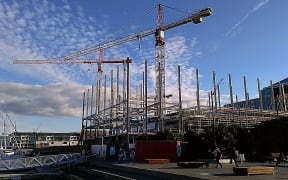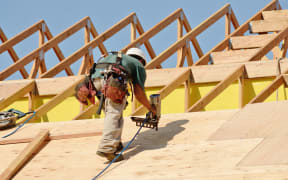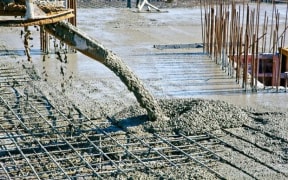New Zealand's building regulator is looking overseas for more ideas on how to clamp down on poor construction.
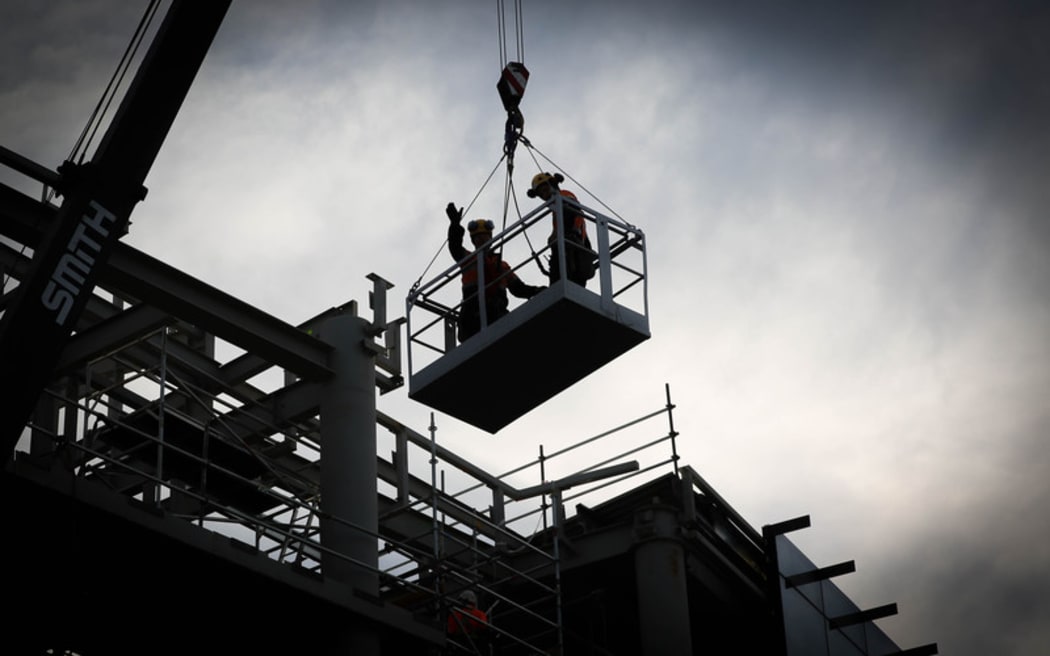
The Ministry of Business Innovation and Employment is keeping an eye on how Australia is tackling dodgy building products. Photo: RNZ / Alexander Robertson
In Britain, the government is forcing building companies to adopt cutting-edge computer modelling to boost productivity and quality.
In Australia, Queensland is leading the way, having just passed a law introducing accountability for dodgy building products right along the supply chain. It boosts the penalties that can be imposed and the powers of the state regulator to test and recall products.
The Grenfell Tower fire in London in June that killed at least 80 people provided a final spur to it.
While the investigation into the cause and spread of the fire is still under way, the use of a particular type of cladding on a building of that height has been blamed for the fire's rapid spread.
"There's no doubt that the tragic circumstances in the Grenfell fire, and then preceding that the Lacrosse fire in Melbourne, it highlighted the need for something to happen," said Master Builders Queensland deputy chief executive Paul Bidwell.
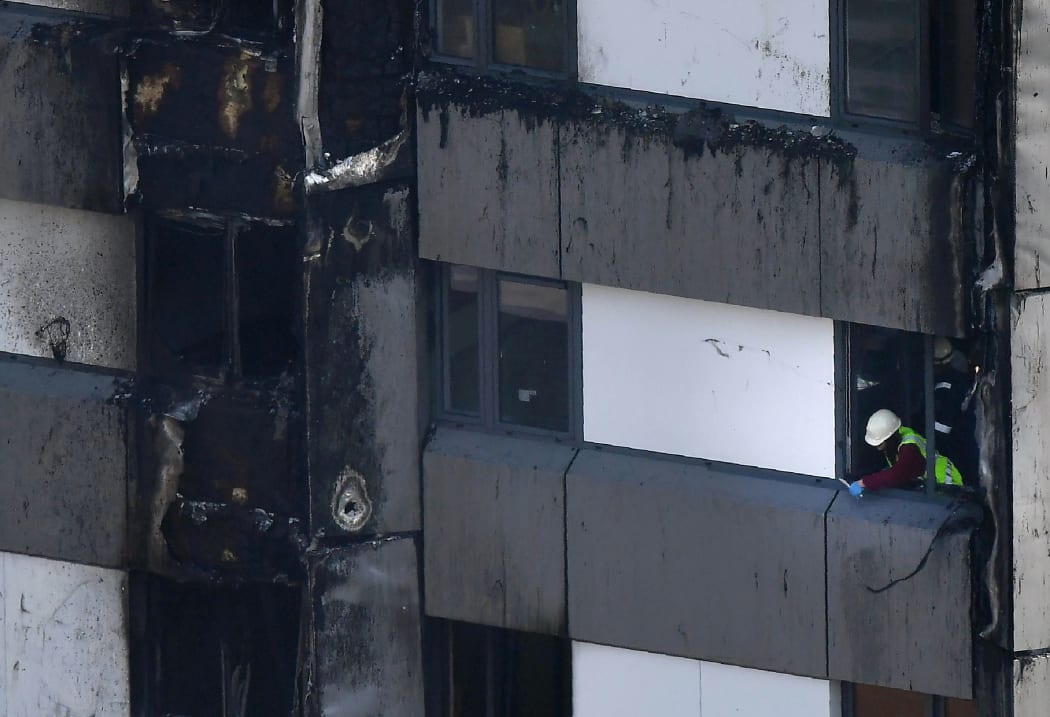
Untouched cladding on the burnt-out upper floors of Grenfell Tower on 14 June Photo: AFP
The new law passed last week was a breakthrough, he said, empowering much bigger fines and extending state powers to investigate, test and recall sub-par products.
"It introduces accountability for building products right across the supply chain, so picking up the importers, the manufacturers, the suppliers, right through to ... the builders."
Other states are expected to follow Queensland's lead, though big questions remain over just how the law will work.
The Ministry of Business Innovation and Employment in New Zealand is watching too.
"We've been looking at the way Queensland's been going about mandatory third-party certification ... the way the liability system works in Queensland and other jurisdictions in Australia, insurance regimes and so forth," said Chris Bunny, who is helping drive a restructure of the building performance branch within the ministry.
In Britain, meanwhile, the focus is on boosting good builders. The government brought in a rule last year that all contractors bidding for centrally-funded public work must use the latest computer modelling technology, Building Information Modelling (BIM).
This approach is on track to save the UK government $2.4 billion this year, and the aim is to cut build times in half by 2015, and allow all products to be tracked, improving quality.
Such tracking could have proved invaluable to local councils in New Zealand now having to trawl through incomplete building records to establish if any high-rises have the sort of cladding implicated in the Grenfell fire.
"They've set some pretty big targets ... in the UK, and it's something which New Zealand should have a close look at," said John Beveridge, who used to run the Placemakers chain and is now a director of Design Windows.
"The lack of productivity improvements ... in this country is a big tax on all parts of construction."
Mr Beveridge said the government should also copy what the UK has done in mandating the use of the latest computer modelling on central government projects.
However, an industry committee in charge of boosting such modelling here, the BIM Acceleration Committee, said a voluntary approach was working and it did not want the government to mandate it.
Surveys show almost two thirds of big industry players are now using BIM in some way, double the uptake of 2014.
Mr Bunny said New Zealand's relatively small size meant it could not easily just copy what big, densely-populated countries were doing in terms of quality and productivity improvements.
"The challenge that we have, and ambition that we have, is to take the best of the best and fold it into our system."

